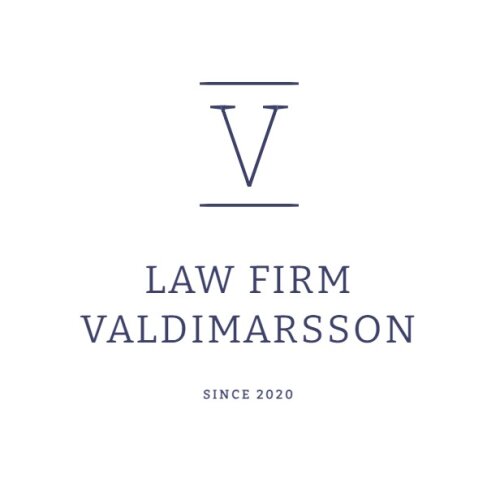Best Tax Increment Financing Lawyers in Reykjavik
Share your needs with us, get contacted by law firms.
Free. Takes 2 min.
List of the best lawyers in Reykjavik, Iceland
About Tax Increment Financing Law in Reykjavik, Iceland
Tax Increment Financing (TIF) in Reykjavik, Iceland, is a public financing method used for subsidizing infrastructural and community improvement projects. Through TIF, future gains in taxes are earmarked to subsidize current improvements that are projected to create the conditions for those gains. This financial tool is often used to incentivize development or redevelopment in areas that may otherwise struggle to attract investment. The use of TIF can be complex, involving multiple stakeholders including local governments, developers, and taxpayers. Reykjavik's approach to TIF focuses on fostering sustainable urban development, meeting local economic goals, and ensuring transparency in the allocation and use of funds.
Why You May Need a Lawyer
Engaging an attorney experienced in Tax Increment Financing can be beneficial in several scenarios:
- You are a developer or investor looking to finance a project using TIF and need guidance on compliance with local regulations and securing approvals.
- You are a municipal official tasked with negotiating TIF agreements and require legal expertise to draft and review terms and conditions.
- A taxpayer or community member concerned about the tax implications or the impact of a TIF district on property values.
- You are dealing with disputes related to the interpretation of TIF statutes or the application of funds.
Local Laws Overview
The framework for Tax Increment Financing in Reykjavik is shaped by national legislation, municipal regulations, and policy directives. Key aspects include:
- Eligibility and Objectives: Projects should align with municipal development plans or specific urban renewal goals.
- Approval Process: Typically involves feasibility studies, public notifications, and hearings before a TIF plan is approved by the city council.
- Financial Mechanisms: Details on how increment revenues will cover the cost of improvements, often through bond issuance or direct project financing.
- Duration and Termination: TIF agreements often have fixed terms, after which the increment revenue reverts to the normal tax base.
- Reporting and Transparency: Legal requirements for periodic reporting and audits to ensure accountability and track progress against objectives.
Frequently Asked Questions
1. What is Tax Increment Financing?
Tax Increment Financing is a mechanism for funding public or private development projects by capturing the future increase in property tax revenues generated by the improved properties.
2. How does a TIF district get established in Reykjavik?
A TIF district is established through a comprehensive process involving project proposal submission, feasibility studies, and approval by the city council following public consultation.
3. Who benefits from a TIF project?
Typically, developers, property owners, and the community at large benefit from improved infrastructure and increased property values, fostering economic growth.
4. Are there risks associated with Tax Increment Financing?
Yes, risks can include project overruns, insufficient tax increment to pay off financing, and potential displacement of existing residents due to rising property values.
5. Can homeowners be affected by a TIF district?
Homeowners may experience changes in property taxes and property values, with benefits such as improved infrastructure, but potential concerns over increased cost of living.
6. Are TIF funds limited to certain types of projects?
Typically, TIF funds are used for infrastructure improvements, redevelopment of underutilized areas, or projects that stimulate economic growth and meet urban planning goals.
7. How is transparency ensured in TIF projects?
Local laws mandate public access to reports and audits, and there are procedures in place for community involvement during the planning and approval phases.
8. What happens when a TIF district ends?
At the end of a TIF period, the increased property tax revenues return to the regular tax roll, benefiting the overall tax base.
9. Can TIF be used for both public and private projects?
Yes, TIF can fund public infrastructure projects as well as incentivize private development initiatives that align with public policy goals.
10. How can a lawyer assist me with TIF in Reykjavik?
An attorney can support you in navigating legal requirements, negotiating agreements, ensuring compliance with regulations, and protecting your interests in related transactions.
Additional Resources
For those seeking more information or assistance with Tax Increment Financing, consider reaching out to:
- Local planning departments in Reykjavik City Council for guidance on municipal rules and procedures.
- The Icelandic Ministry of Industries and Innovation for policy context and legislative framework.
- Professional associations like the Icelandic Bar Association for referrals to qualified legal practitioners.
- Financial consultancies specializing in public finance and developmental economics.
Next Steps
If you require legal assistance regarding Tax Increment Financing in Reykjavik, consider following these steps:
- Research: Gather relevant documentation and basic understanding of your specific concerns or projects.
- Consultation: Reach out to a qualified attorney who specializes in TIF or municipal finance for an initial consultation.
- Strategy: Work with legal counsel to develop a clear strategy, whether for entering a TIF agreement, addressing compliance issues, or engaging in dispute resolution.
- Follow-Up: Keep informed about legal and procedural updates, engage in continuous dialogue with your lawyer, and remain proactive throughout the process.
Lawzana helps you find the best lawyers and law firms in Reykjavik through a curated and pre-screened list of qualified legal professionals. Our platform offers rankings and detailed profiles of attorneys and law firms, allowing you to compare based on practice areas, including Tax Increment Financing, experience, and client feedback.
Each profile includes a description of the firm's areas of practice, client reviews, team members and partners, year of establishment, spoken languages, office locations, contact information, social media presence, and any published articles or resources. Most firms on our platform speak English and are experienced in both local and international legal matters.
Get a quote from top-rated law firms in Reykjavik, Iceland — quickly, securely, and without unnecessary hassle.
Disclaimer:
The information provided on this page is for general informational purposes only and does not constitute legal advice. While we strive to ensure the accuracy and relevance of the content, legal information may change over time, and interpretations of the law can vary. You should always consult with a qualified legal professional for advice specific to your situation.
We disclaim all liability for actions taken or not taken based on the content of this page. If you believe any information is incorrect or outdated, please contact us, and we will review and update it where appropriate.

















